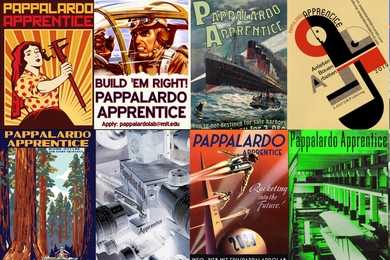Two professors join Academia Sinica
Two MIT professors were recently inducted to the Academia Sinica, the national academy of the Republic of China (Taiwan).
Victor Zue, electrical engineering and computer science professor and director of the Computer Science and Artificial Intelligence Laboratory, was named academician in the division of mathematics and physical science; and Li-Huei Tsai, a professor in the Department of Brain and Cognitive Sciences, was named academician in the division of life sciences.
Both were awarded the honor at the Academia Sinica's biennial Convocation on July 1-4. The academy supports research activities in a wide variety of disciplines, ranging from mathematical and physical sciences, to life sciences, and to humanities and social sciences. The Convocation of the Academia Sinica consists of more than 200 academicians, including six Nobel laureates. Academician membership is an honorary lifetime privilege. The eligibility of the academicians is not restricted to the residents of Taiwan or ROC citizens, although the academicians all have Chinese heritage. More than half of the academicians are oversea scholars and scientists.
Matthews wins Damon Runyon Cancer Research Foundation fellowship
Adam G. Matthews, a postdoctoral fellow in the Department of Biology, was recently named one of 14 new Damon Runyon Fellows.
The recipients of this prestigious, three-year award are outstanding postdoctoral scientists conducting basic and translational cancer research in the laboratories of leading senior investigators across the country.
Matthews, sponsored by biology Professor Stephen P. Bell, is investigating how human DNA replication is regulated to ensure faithful duplication of the genome, maintain genome stability and prevent the development of cancer.
de Weck receives 2007 Best Paper Award from Systems Engineering
The journal Systems Engineering has given its 2007 Best Paper Award to a paper co-authored by MIT Engineering Systems Division Professor Olivier L. de Weck titled "Assessing Risks and Opportunities of Technology Infusion in System Design."
The paper, which appeared in the Spring 2007 issue, presents a technology infusion assessment methodology to quantify both the potential benefits as well as costs of new technologies--not in isolation, but in the context of a parent system or host product.
The award was announced at the opening session of the 18th Annual International Symposium of INCOSE on June 16 in Utrecht, Netherlands.
Two MIT scientists receive NARSAD's prestigious 2008 Young Investigator Award
Two MIT scientists have been selected by NARSAD, the world's leading charity dedicated to mental health research, as two of 220 early career scientists to receive a 2008 Young Investigator Award.
Each of the scientists will receive $60,000 from NARSAD over the next two years to study a variety of topics.
Media Lab Professor Edward S. Boyden is developing technology to assess the role of coordinated neural activity in cognitive deficits in schizophrenia. The technology will be used to determine whether gamma-synchronized neural activity is necessary for proper behavioral function, and to determine if amplified oscillations can remedy disordered perceptual and cognitive processing typically found in individuals with schizophrenia.
Marie Carlén, a postdoctoral fellow at the Picower Institute for Learning and Memory, will use specially engineered mice models to study the role of two different populations of cortical interneurons that are especially implicated in the pathology of schizophrenia.
DuPont gives grants to young professors developing novel science of company interest
DuPont recently recognized 17 young professors--including materials science and engineering Professor Krystyn Van Vliet--with the annual DuPont Young Professor grant, which recognize original research in chemistry, biofuels, miniaturization applications for electronics and medicine, structure and function of proteins, nanocomposites, studies in earth science and climate change.
Each young professor will receive a three-year grant for $25,000. The grants may be used to obtain matching funds through the National Science Foundation or other organizations.
MIT sending two to participate in U.S. Frontiers of Engineering Symposium
Stephen J. Uftring, assistant leader of the Missile Defense Elements Group at MIT Lincoln Laboratory, and Christopher Schuh, an associate professor in the Department of Materials Science and Engineering, have been selected to take part in the National Academy of Engineering's 2008 U.S. Frontiers of Engineering Symposium, which brings together engineers who are performing exceptional research and technical work.
A version of this article appeared in MIT Tech Talk on September 10, 2008 (download PDF).





